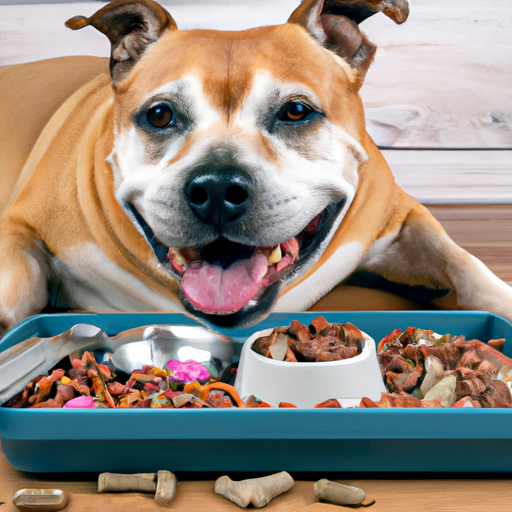Understanding Your Dog’s Weight
First and foremost, it’s important to understand why your dog might be underweight. Is it due to illness, a sudden loss of appetite, or perhaps a recent change in diet? Every dog is unique and their needs may vary.
Being underweight can impact your dog’s health and overall well-being. Your mission, as their caregiver, is to help them regain a healthy weight and maintain it.
Your vet can provide a proper weight range for your dog, taking into account their breed, age, and other factors. It’s also crucial to monitor any sudden weight changes as they could indicate underlying health issues.
Increase Caloric Intake
One of the most straightforward approaches to weight gain is increasing your dog’s caloric intake. However, doing so should be a gradual process. Here are some strategies:
-
High-Protein Foods: Offer foods that are high in protein, such as lean meats and fish. These can help build muscle and encourage weight gain.
-
Healthy Fats: Incorporate sources of healthy fats like salmon and flaxseed. These can provide a calorie boost and improve coat health.
-
Calorie-Dense Treats: Consider calorie-dense treats, but ensure they’re still nutritious and not just filled with empty calories.
Regular Exercise
Exercise is a vital component of healthy weight gain. While it may seem counterintuitive, regular exercise can stimulate your dog’s appetite and help them gain weight.
Ensure your dog gets plenty of exercise each day. Several short walks or a long one, a game of fetch, or even agility training can work wonders. Remember, every dog is different, so it’s important to tailor an exercise regimen that suits your dog’s needs and energy levels.
Monitor Progress
Consistently monitor your dog’s progress. Regular weight checks can help you track whether your dog is gaining weight at a healthy pace or not.
| Week | Weight |
|---|---|
| 1 | 20 kg |
| 2 | 21 kg |
| 3 | 22 kg |
If your dog isn’t gaining weight or is losing weight despite your efforts, it’s essential to consult with your vet. They can help identify any potential health issues and provide guidance.
Create a Comfortable Environment
Finally, stress can impact a dog’s weight. Ensure your furry friend has a comfortable, stress-free environment. This includes regular sleep, a safe space, and plenty of affection from you, their caregiver.
FAQ
How much food should I feed my dog to help them gain weight?
The amount of food your dog needs can vary based on their size, breed, age, and overall health. It’s best to consult with your vet for a personalized feeding plan.
Can I give my dog human food for weight gain?
While some human foods are safe for dogs, others can be harmful. Always consult with your vet before introducing new foods into your dog’s diet.
How long will it take for my dog to gain weight?
Healthy weight gain is a gradual process. It could take weeks or even months for your dog to gain weight. It’s crucial to be patient and consistent.
Remember, your love, patience, and care will go a long way in helping your dog gain weight and stay healthy.



